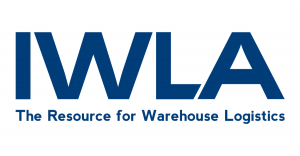
IWLA Expresses Concerns over CARB Zero-Emission Forklift Regulation
CARB’s new rule mandates the removal of internal combustion engine (ICE) forklifts from existing fleets by 2026, replacing them with electric vehicles powered by rechargeable batteries. While this regulation does offer some accommodations for smaller fleets, the speed of these changes could still disrupt the goods-movement sector in California and beyond.
The market is already transitioning from ICE to electric forklifts due to their economic and environmental benefits. Electric forklifts now comprise approximately two-thirds of the forklift market, with many IWLA members having already made this transition and others planning to do so as their existing fleets age. However, the immediate replacement mandate for ICE forklifts is seen as aggressive. IWLA advocates for a market-drive phased approach, initially targeting older, less efficient, higher-emission pre-2011 forklifts to improve local air quality and reduce carbon intensity.
“The rule’s requirement for the replacement of all ICE forklifts by 2026, regardless of their condition, imposes a heavy economic burden on warehouses,” says IWLA President & CEO Jay D. Strother. “This is especially true for those with newer ICE fleets, who would face significant lost utilization costs and high replacement costs for new zero-emission forklifts.”
Additionally, electric forklifts require significant time to charge and cool, meaning operators may need to purchase multiple electric forklifts to replace a single ICE forklift. This could potentially increase fleet sizes by two to three times—creating additional logistical challenges by reducing operational space and effectively shrinking the net rentable area of warehouses.
The installation of charging stations and ensuring adequate power generation and transmission for an electrified fleet presents considerable infrastructure costs and logistical challenges. In some cases, new structures may need to be built to store and charge electric forklifts indoors, which may not be feasible with existing space. For smaller owner-operators, these costs could be prohibitive, potentially forcing operations to shut down and negatively impacting the local economy.
“IWLA has been actively monitoring the proposed rule, though we were not directly engaged in its development,” adds Strother. “We believe a more balanced approach would better serve the needs of the industry while still contributing to environmental goals without imposing undue burdens on warehouses.”
###
Note: Photos are available on request. IWLA media credentials are available for accredited industry journalists. For more information, please send your requests to mdonahue@IWLA.com or call 847.813.4696.
About IWLA: Since 1891, the International Warehouse Logistics Association has been the resource for warehouse logistics, advocacy, and education. For more information, visit www.IWLA.com. IWLA, formerly the American Warehouse Association, serves nearly 600 corporate members representing 3,000 warehousing locations.
Marina Hart Donahue
International Warehouse Logistics Association
+1 847-813-4696
email us here
Visit us on social media:
Facebook
LinkedIn
YouTube
EIN Presswire does not exercise editorial control over third-party content provided, uploaded, published, or distributed by users of EIN Presswire. We are a distributor, not a publisher, of 3rd party content. Such content may contain the views, opinions, statements, offers, and other material of the respective users, suppliers, participants, or authors.


